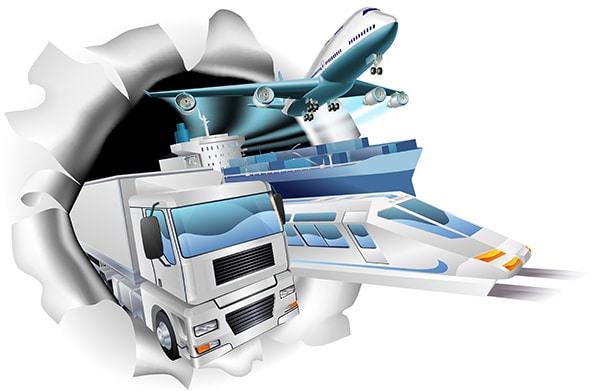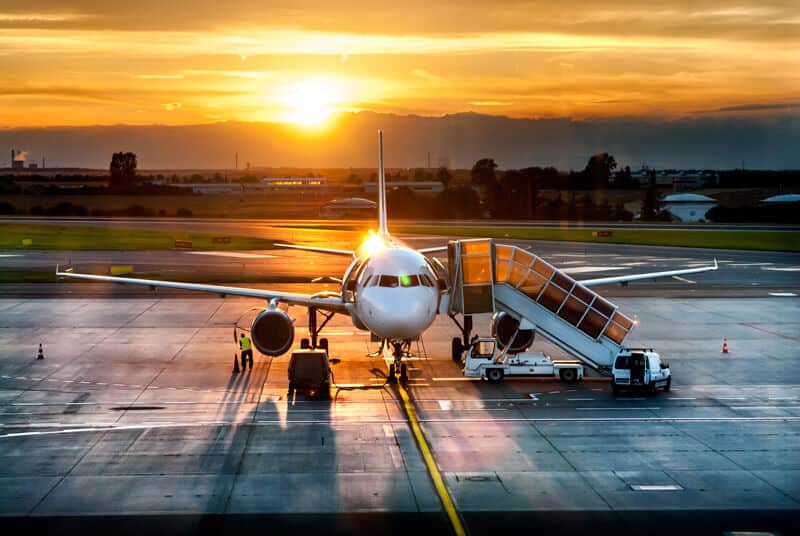
Big Announcement: DOT authorizes oral fluid drug testing for DOT drug & alcohol testing program, check it out:
DOT Oral Fluid Drug Testing, Collections & Mocks
Anyone designated in Department of Transportations (DOT) regulations as being a safety-sensitive employee, such as airplane pilots, boat captains, truck drivers and flight attendants, is required to submit to drug and alcohol testing. DOT drug testing is performed prior to hiring and on a random basis once employed. Random testing for drugs and alcohol is required by most DOT agencies. In addition to pre-employment and random drug screening, a DOT drug test may be required for reasonable suspicion, post-accident, returning to duty after a period of absence, or a follow-up (such as to maintain an active status after returning to duty).
More detailed information is provided for each of the following:
National Drug Screening provides DOT drug testing and services to employers and individuals nationwide. All of our DOT drug and alcohol testing programs are DOT compliant and can easily be purchased online or by calling 866-843-4545. Easily choose from a one time test or enroll in a consortium program. We provide DOT drug testing programs for DOT Compliance for FAA regulated employers, owner operator truck drivers, private fleets, for hire carriers, and small trucking and bus companies.
There are six main job industry categories, as defined in the Department of Transportation regulations, as being safety-sensitive and therefore required to submit to DOT drug and alcohol testing. These are commonly called DOT agencies or modes of transportation. They are:
FAA regulated employees, which include, but are not limited to air traffic controllers, aircraft maintenance personnel, aircraft dispatchers, air tour operators, ground security, flight instructors, flight crews, and flight attendants. Learn more about DOT compliance for FAA regulated employers
Some examples of FMCSA regulated positions: drovers of vehicles required to display a DOT placard when transporting hazardous material, vehicles that carry over 16 passengers including the driver, and CDL (Commercial Driver’s License) holders who operate commercial motor vehicles that weigh a minimum of 26,001 Lbs. For FMCSA regulated employers, learn more about DOT Compliance.
an agency of the United States Department of Homeland Security follows DOT regulations for drug and alcohol testing. Regulated employees include boat captains and as well as any crewmembers operating commercial vessels. Learn more about drug testing under United States Coast Guard regulations
For oil and gas companies working on pipeline, which includes operations, maintenance and emergency response, operators and their contractors are required to submit to DOT compliant testing.
This includes members of employees of railroads including, Hours of Service Act (HSA) personnel, train and engine, and signal service or train dispatchers. Learn more about FRA Regulation 49 CFR Part 219.. Maintenance of Way (MOW) Employees are also required to be in a FRA MOW drug & alcohol testing program – get more information.
This DOT agency includes vehicle mechanics, controllers, operators and armed security. Learn more about the FTA, in particular FTA Regulation 49 CFR Part 655.
A safety-sensitive employee can be anything from a pilot or flight attendant, to a bus driver or boat captain. As a safety-sensitive employee, there are much more strict behavioral requirements than other industries of employment, and certain conduct is prohibited by DOT regulations.
Employees are not permitted to use or even possess alcohol or illegal drugs while executing safety-sensitive functions, or while assigned to perform safety-sensitive tasks or roles. Employees are not permitted to consume alcohol within 4 hours of reporting for duty, or after receiving notice to report to duty. For flight attendants and flight crew members, it is 8 hours prior to reporting for service that they are prohibited from consuming alcohol.
Some of the restrictions are more common among other industries as well, like employees must not report for service, or remain working, when using a controlled substance, unless of course it is used in accordance with an authorized medical practitioner’s instructions. Obviously, if an employee is impaired by or under the influence of alcohol, or has used an illegal drug, then they are prohibited from reporting for duty, or remaining on duty.
Even if an employee has consumed alcohol the day prior to reporting for duty, if they still have a blood alcohol concentration (BAC) or breath alcohol level of 0.04 or more, or in some regulations 0.02 to 0.039, then they are not permitted to report for duty until their next scheduled service period. Employees cannot refuse to submit to any test for drugs or alcohol, or, of course, alter it in any way, or adulterate or substitute their specimen.

The specific Department of Transportation rule concerning drug and alcohol testing for safety-sensitive employees is rule 49 CFR Part 40. This rule specifies that DOT drug and alcohol tests must be analyzed by a SAMHSA (Substance Abuse and Mental Health Services Administration) certified laboratory, and reviewed by a MRO (Medical Review Officer), and must be done on a federal “chain of custody” form.
National Drug Screening can handle all of this for you. Not only do we provide the services mentioned above, we also provide reasonable suspicion testing, post-accident testing and 24/7 emergency drug test collections. If you need a DOT drug test and you want to be sure you are in compliance, contact National Drug Screening today.
Our drug and alcohol testing centers are located in all areas of the United States. We can also provide onsite or mobile DOT drug and alcohol testing, so if you can’t come to us, we can come to you! As an employer, you may find it much easier and more efficient for us to come to your place of business.
The standard 5 panel DOT urine drug test is used for safety-sensitive employee drug screenings. This consists of testing for:
All non-negative drug screens are required to be submitted for further confirmatory testing.
Employees who drive commercial motor vehicles are sometimes not permitted to use habit-forming drugs, amphetamines or narcotics even if prescribed by a licensed medical practitioner, but certain exceptions may be made if there is sufficient reason and documentation. The licensed medical practitioner that prescribed the drug must be well acquainted with the driver’s medical history, and be able to reasonably confirm that the drug prescribed will not have any adverse effects that could potentially impair the driver’s ability to safely operate the commercial motor vehicle.
If an applicant refuses the DOT drug test or tests positive, they will not be hired for that position. If any existing safety-sensitive employee returns positive results in a drug or alcohol test, or refuses to take a random drug test or post-accident test, they will not be allowed to return to work and perform safety-sensitive duties, and can perhaps be fired.
However, there are some cases where employees may be allowed to return to work after they have seen a substance abuse professional (SAP), have been provided treatment and/or education and successfully completed a negative return-to-duty DOT drug test. For employers looking for DOT compliant drug testing, National Drug Screening can handle all of this for you. We are 100% DOT compliant, and offer a wide variety of drug testing programs and services.
The Department of Transportation requires a five panel drug test with urine and a breath alcohol test when alcohol testing is required. In the near future, DOT may allow lab based oral fluid testing and hair testing. If you are unsure what testing is required to be compliant, give us a call at 866-843-4545.
As an owner-operator, you are required by the Department of Transportation to meet certain drug and alcohol testing requirements for compliance. This includes registering for a DOT consortium program.
National Drug Screening provides DOT consortium programs for owner-operators throughout the United States. Our packages include everything required to be DOT compliant, including:
Our owner-operator consortium programs are the most competitive in the nation. You can easily purchase the package you need online, or give us a call at 866-843-4545 and our knowledgeable and friendly associates can help you find the right program.
Lots of questions about DOT post-accident testing come in every day. DOT post-accident testing should only be done when the accident involves a covered employee and the accident meets the specific DOT agency criteria defined in the regulations. Federal DOT testing is not required for every accident.